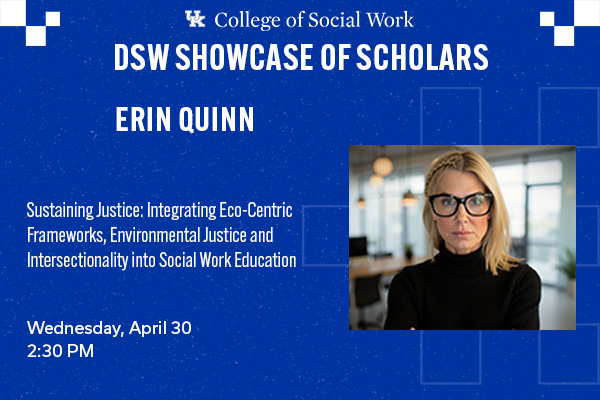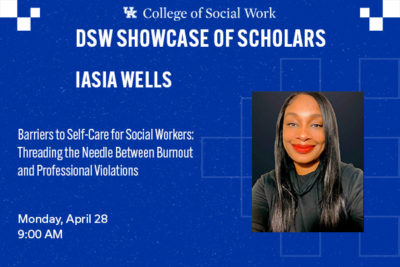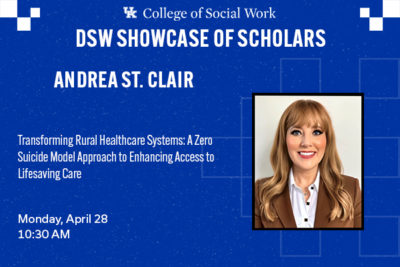DSW Candidate – Erin Quinn, 2:30 PM-3:45 PM
$0.00
Virtual Showcase of DSW Scholars 2025 Event!
Sustaining Justice: Integrating Eco-Centric Frameworks, Environmental Justice and Intersectionality into Social Work Education
DSW Candidate – Erin Quinn, lCSW, CASAC
Wednesday, April 30, 2025
2:30 PM-3:45 PM Eastern Time Zone
Credit Hours: 1.0 (ACE)
Description
Sustaining Justice: Integrating Eco-Centric Frameworks, Environmental Justice and Intersectionality into Social Work Education
Imagine a world where social work education addresses human needs and harmonizes with the natural environment, creating a transformative approach to societal well-being. This capstone project examines environmental justice within social work education through a systematic literature review, a conceptual framework, and practical applications. The literature review reveals that social work clients are increasingly faced with ecological justice challenges, such as climate change, pollution, and resource disparities, which disproportionately affect the vulnerable populations that social workers serve. Despite the significance of these issues, many social workers report feeling unprepared to address them, indicating a gap in current educational practices.
The conceptual framework highlights the importance of integrating environmental justice and an eco-centric perspective into social work education. This integration enhances social work practice and helps address ecological challenges more effectively. The project emphasizes incorporating environmental justice concepts into social work training. By doing so, future social workers will be better equipped to tackle inequalities and advocate for marginalized communities.
The proposed curriculum focuses on eco-centric perspectives and intersectionality, integrating ecological systems theory with positive psychology. It aims to equip social workers with essential skills such as environmental assessment and community organizing to address environmental challenges and support marginalized communities. The curriculum will also examine how ecological degradation affects mental health, emphasizing the need to incorporate these issues into social work practice.
Learning Objectives:
Upon completion of this conference, participants will be able to:
- Raise awareness of environmental justice issues.
- Inspire individuals to engage in advocacy efforts to promote sustainable practices.
- Educate on intersectionality as it pertains to environmental justice.
Delivery Method: Live Interactive Training via Zoom Video Conferencing
Credit Hours: 1.0 (ACE)
Target Audience: This conference is intended for social workers and students.
Accreditation: University of Kentucky College of Social Work, Provider # 1377, is approved as an ACE provider to offer social work continuing education by the Association of Social Work Boards (ASWB) Approved Continuing Education (ACE) program. Regulatory boards are the final authority on courses accepted for continuing education credit. ACE provider approval period: 9/29/22-9/29/25. Social workers participating in this conference will receive up to 15 general continuing education credits.
Claiming CE Credit: Instructions for claiming CE credit will be disseminated at the beginning of each session.
Questions: If you have any questions regarding CE credit or to report a grievance, please contact Christina Krantz at Christina.Krantz@uky.edu. For technical assistance, please contact lmshelp@uky.edu.
Disclaimer: The views and opinions expressed in these presentations are those of the individual presenters and do not necessarily reflect the official policies or positions of the University of Kentucky or the College of Social Work. The inclusion of any topics, perspectives, or discussions is intended for academic engagement and does not constitute endorsement by the institution.



